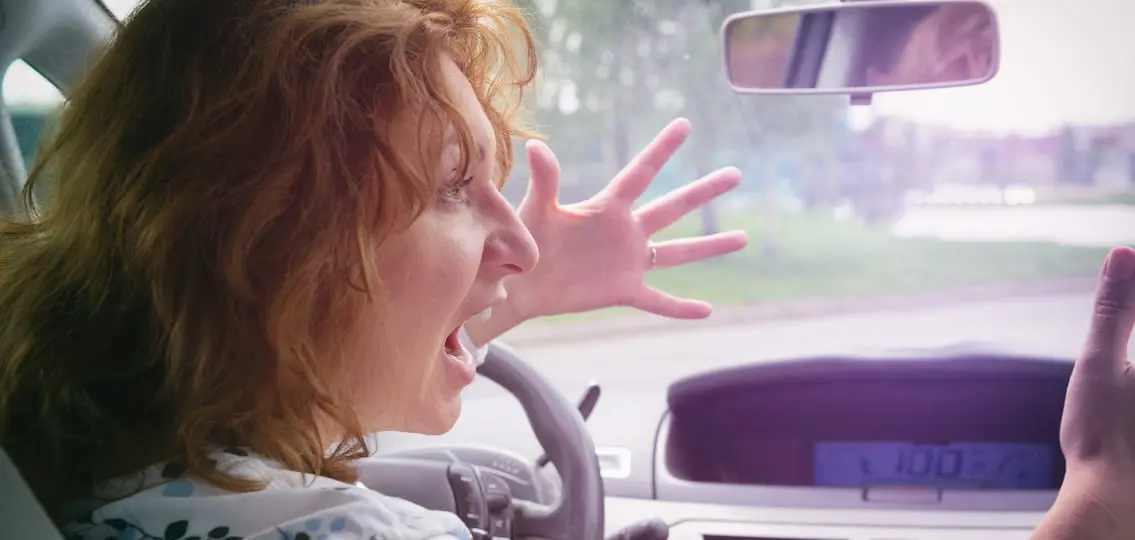Teens know how to push our buttons. Whether it’s refusing to do their chores, engaging in risky behaviors, or waiting until the last minute to tell us they need something for a school project, our kids can make us angry unlike anyone else in our lives. But is it something to worry about?

Psychologists at the University of Rochester recently studied how parental anger affects teen discipline. They found that parents who are least effective at controlling their anger during difficult interactions are more likely to discipline harshly and engage in hostile conflict.
The study’s lead author, Melissa Sturge-Apple, compares adolescence to toddlerhood. In both stages of development, kids are trying to figure out who they are and develop their independence. Parents need to be able to think on their feet and deal with conflicts more flexibly, a process that researchers call set shifting.
Set shifting involves taking into consideration a child’s temperament and the developmental processes at play and adjusting disciplinary approaches to resolve conflicts more effectively. Parents who are better at set shifting—the study found that mothers tend to do this better than fathers—are more able to manage their own emotions during a conflict.
How to Manage Emotions During a Conflict:
Anger during conflict can be ineffective and lead to poor decision-making. But how can we stay calm? Here are some practical tips from the experts on anger management for parents.
1. Plan for punishments before emotions run high
“The worst administered consequences come when problem behavior is unexpected and parents are under duress for a solution,” says marriage and family therapist Carrie Krawiec of the Birmingham Maple Clinic in Troy, Michigan. “Instead, predict potential problems in advance, and consider small, medium, and large consequences for small, medium, and large infractions.”
Krawiec encourages parents to discuss these potential consequences before a conflict. Teens can even help parents write up contracts to reference when necessary.
2. Practice mindfulness during calm times
“Our responsibility is to do our own work around self-regulation,” says Casey O’Roarty, host of the Joyful Courage parenting podcast, and author of upcoming book, Joyful Courage: Calming the Drama and Taking Control of Your Parenting Journey.
O’Roarty encourages parents to set aside time each day to practice mindfulness so that we can better control ourselves during conflict situations. Mindfulness can be achieved through meditation and involves being fully aware of one’s body, thoughts, and emotions. Many studies have found that practicing mindfulness can lead to increased compassion and less anger during conflict situations.
3. Think about your long-term parenting goals
Kim Metcalfe, Ph.D., author of Let’s Build ExtraOrdinary Youth Together, encourages parents to stay focused on their goal of helping teens prepare for productive, joyful lives. “Anger closes down conversation and removes the learning opportunities teens need to build the skills to achieve these goals,” she says. “As anger bobbles up, ask yourself whether your anger will help you support your teen in reaching that goal.”
4. Think about why you’re getting angry
O’Roarty explains that fear can lead to anger. When we find out our kids smoked pot or failed a class, she explains, we get angry because we worry about the negative consequences of those actions. “Irrational demands and consequences follow, and we end up doing damage to the relationship we have with our kids,” she says.
She suggests that we focus instead on having a conversation with our teens about the experiences and emotions driving those negative behaviors. Once we have had those conversations, and our teens have felt understood, we can calmly discuss consequences without it turning into a fight with your teenager.
5. Ask your teen questions
According to Kathy Taberner, co-founder of the Institute of Curiosity, when we ask open questions, dopamine is released, and we feel better. “When one party understands why their emotions are rising, intentionally accesses a place of calm, and asks an open question, the tension is released,” she says. “With more open questions, the conversation becomes calm, and both people are able to understand each other, connecting on a deeper level.”
“We have a short-sighted idea that if we come up with the right punishment, our teens will feel the pain,” says O’Roarty. “In reality, we have the most influence in the relationships we develop with them when we are open and accessible.”

Most parents recognize how emotions can run high when interacting with teenagers. By taking the time to work on our own self-regulation, be aware of our triggers, and plan consequences in advance, we can increase the chances of successful conflict resolution with our kids. If the problem feels too big to be managed with these helpful tips, parents should seek additional help from a family counselor.




